Data is power: Indie beauty brands get personal with big data

Because big data gives feedback untainted by human agenda, it allows companies to identify an audience, mistakes and opportunities as accurately as possible. And it is also enabling companies to provide consumers with precise beauty services and products.
Big data in the big leagues
Of courcse, large brands are no stranger to utilising insight gathered from analysing data.
The Tmall Innovation Centre (TMIC), by the Alibaba Group, is dedicated to reverse engineer the process of developing products.
By analysing data from Alibaba’s massive e-commerce ecosystem, TMIC identifies new product opportunities for very specific Chinese demographics, letting the customer data determine the product should be developed.
Most recently, it has partnered with L'Oréal China to develop a male beauty line just for the Chinese market.
With 14,400 stores in 24 markets worldwide, A.S. Watson holds the data of over four billion customers that it can use to launch effective marketing campaigns for both small and big brands.
With this data, the world’s largest international beauty and healthcare retailer, recently helped to launch TRESemmé hair care in China with a strategic plan backed by its database.
What customers want
Unlike multi-national corporations, niched brands do not have the luxury of access to mountains of consumer data from around the world. However, it is not stopping indie brands like from jumping on the bandwagon.
Beauty start-up, Proven, creates personalised skin care by distilling freely available data on the World Wide Web. Using an Artificial Intelligence (AI) engine, the brand digests millions of product reviews, a library of over 20,000 ingredients, and thousands of peer reviewed scientific articles.
With a massive database and machine learning capabilities, Proven is able to program an entire bespoke regimen for individual consumers.
Freewill, launched in August, is the first ever Indian beauty company to create custom hair products that are created by carefully analysing consumer characteristics.
The brand offers consumers shampoo, conditioner and hair serum, which are made-to-order with natural ingredients. With the help of a powerful algorithm, Freewill analyses over 1.7 billion formulations to create a product tailored to the individual.
The human touch
Unlike Proven or Freewill, HelloAva does not create its own products. Instead, it is a chatbot that helps consumers build a personalised skin regimen. The virtual consultant uses an algorithm that selects an array of products, before directing consumers to the checkout.
Despite being a bot, Ava is anything but robotic. Her language is conversational, she uses emojis, and can even address you by a nickname rather than your real one.
Despite the demand for high-powered algorithms and AI tech, consumers still desire the human touch, and cannot fully place their trust in decisions made by a computer. As personable as Ava the bot may seem, consumers are still referred to real humans after their initial chat with Ava.
These personal skin care advisors function as gatekeepers to double-check Ava’s recommendations, as well as assure consumers of the “human factor”.
Balance of technology and humanity
Singapore-based beauty start-up Alcheme has found a way to balance both technology and humanity when it comes to creating personalised skin care products.
Like other beauty high-tech beauty brands that offer customised skin care, Alcheme uses an algorithm to assess skin condition.
Developed by the Massachusetts Institute of Technology (MIT), the algorithm compares an individual’s selfie to its database of over 20,000 selfies. After factoring answers to five questions, the algorithm gives users a preliminary analysis on their skin concerns, and the ingredients that are best suited to correct them.
All preliminary analyses are double-checked, and Alcheme’s staff will follow up with customers if their human eyes detect inconsistencies and additional skin problems.
Once the skin analysis is complete, the products are created in Alcheme’s lab in Singapore.
The brand’s lab has had the privilege of collaborating with Lionel de Benetti, the former head of Research and Development for French beauty brand Clarins. With his help, Alcheme has created a list of 24 ingredients shortlisted for their proven track records of efficacy, ensuring each customised product is a high-performing one.
This way, customers of Alcheme are ensured that the products they receive have been given the stamp of approval of both man and machine – the best of both worlds.
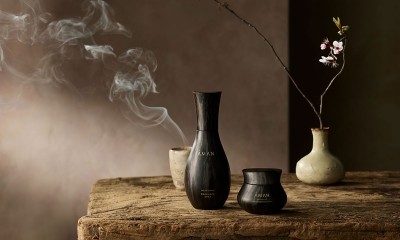
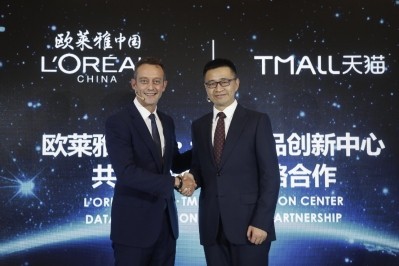

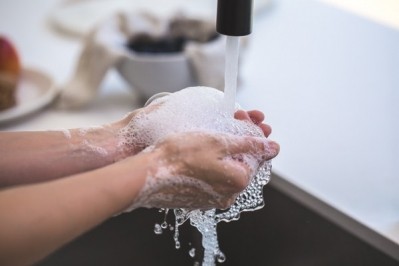
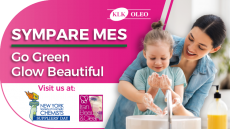

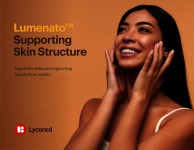
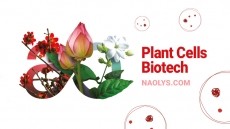

![Latest developments from the South Korean beauty market. [Getty Images]](/var/wrbm_gb_food_pharma/storage/images/_aliases/wrbm_tiny/publications/cosmetics/cosmeticsdesign-asia.com/headlines/brand-innovation/korea-focus-able-c-c-kolmar-and-more-in-this-k-beauty-round-up/17357973-1-eng-GB/Korea-focus-Able-C-C-Kolmar-and-more-in-this-K-beauty-round-up.jpg)

![Able C&C has furthered its partnership with Japanese discount chain Daiso with new makeup launch. [A'pieu]](/var/wrbm_gb_food_pharma/storage/images/_aliases/wrbm_tiny/publications/cosmetics/cosmeticsdesign-asia.com/headlines/brand-innovation/a-pieu-and-daiso-launch-exclusive-2-makeup-line/17339117-1-eng-GB/A-pieu-and-Daiso-launch-exclusive-2-makeup-line.jpg)
![Down Under Enterprises is setting sights on the Asian market as environmental sustainability and traceability become increasingly important. [Getty Images]](/var/wrbm_gb_food_pharma/storage/images/_aliases/wrbm_tiny/publications/cosmetics/cosmeticsdesign-asia.com/headlines/market-trends/down-under-enterprises-shifts-focus-to-china-as-environmental-sustainability-traceability-come-into-the-spotlight/17304932-1-eng-GB/Down-Under-Enterprises-shifts-focus-to-China-as-environmental-sustainability-traceability-come-into-the-spotlight.jpg)
![News updates from Shiseido, Dr.Ci:Labo, Sephora, and more. [Shiseido]](/var/wrbm_gb_food_pharma/storage/images/_aliases/wrbm_tiny/publications/cosmetics/cosmeticsdesign-asia.com/headlines/brand-innovation/updates-from-shiseido-dr.ci-labo-sephora-and-more/17334944-1-eng-GB/Updates-from-Shiseido-Dr.Ci-Labo-Sephora-and-more.jpg)

![Clariant has underscored the importance of localisation strategies and distribution capabilities in China with beauty trends evolving at a rapid pace. [Getty Images]](/var/wrbm_gb_food_pharma/storage/images/_aliases/wrbm_tiny/publications/cosmetics/cosmeticsdesign-asia.com/article/2024/04/16/clariant-emphasises-importance-of-localisation-in-the-era-of-viral-trends/17327969-1-eng-GB/Clariant-emphasises-importance-of-localisation-in-the-era-of-viral-trends.jpg)



